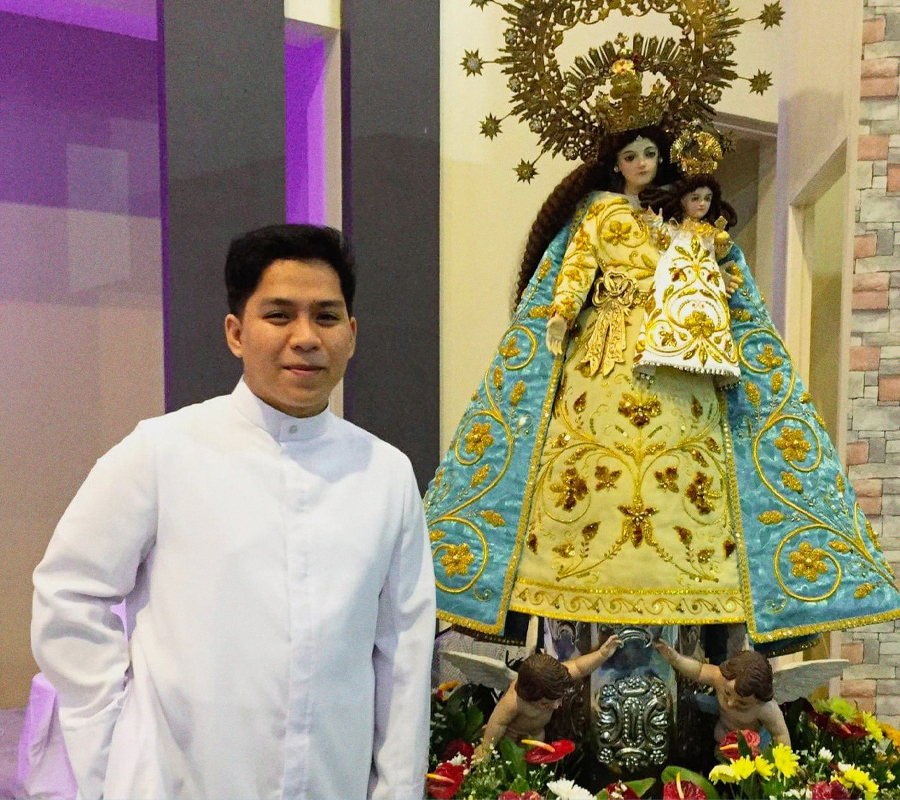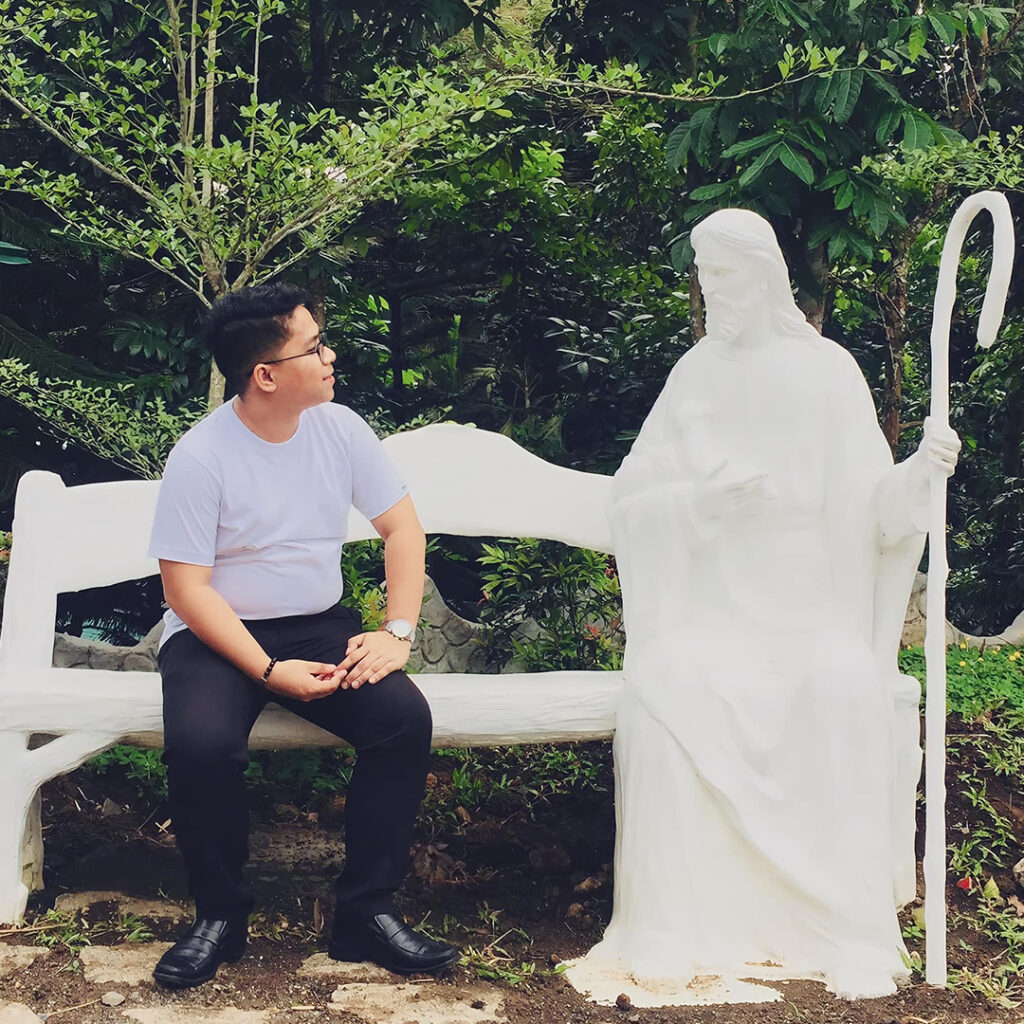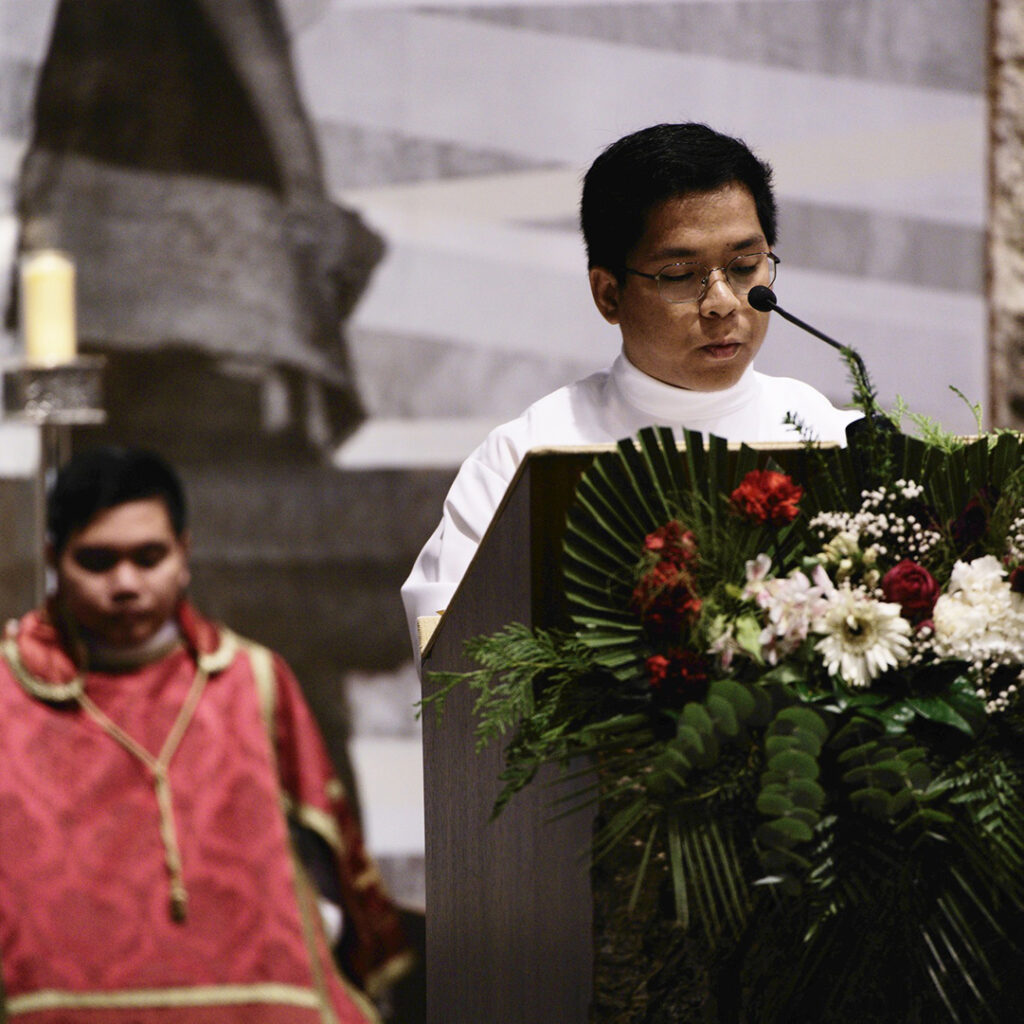
"There is a lot of thirst for God," says Carlo Alexis Malaluan Rollán a 24 year old Filipino seminarian from the diocese of Imusa diocese that pastors more than 4 million people.
His bishop sent him to the Bidasoa International Seminar (Pamplona) to receive comprehensive training thanks to the benefactors of the CARF Foundation.
Carlo Alexis studied psychology in the Philippines and as a young man wanted to become a psychiatrist, but things changed as he became more and more involved in the Church's volunteer work with young people and students.
"I collaborated with priests, religious men and women. Somehow, I sensed the joy in their lives, lives full of joy despite the difficulties, lives ready to serve despite the demands of sacrifice. I felt it was a happy and fulfilling life." Gradually, he noticed a great joy in the work he was doing, a joy that cannot be found anywhere else....
In this environment and in one of his confessions, the priest, whom he hardly knew, said to him: "I've been waiting a long time for you to come to me!". That was his real turning point, the moment when he felt in the deepest part of his being that it was really the Lord who had been calling him to continue his work in the vineyard.
Carlo entered the seminary in 2019 at the age of 21, a few days after his graduation from the Bachelor of Psychology. "Vocation is always a gift. It is a gift that we have received from a generous God and that is destined to be given as a gift to his people.".
In a secularized world, young men like Carlo Alexis, who leave everything to become priests, produce a spark of hope. That is why, for him "a young priest of the 21st century must always have a heart of the Good Shepherd".
For Carlo Alexis Malaluan Rollán, this is what a priest's heart should be like: "a heart that is always young and animated, a heart that not only hears but listens; a heart that welcomes and embraces all people from different social conditions; a heart that walks with the pilgrim people that God has entrusted to it. We live in a world thirsty for God. In a society saturated with secularism and materialism, we have lost the sense of God.".
"We have a Filipino people who yearn more than ever for the sacred. In a pessimistic world, that is where the priest comes in, who points out to us - with his words and his works, with his very life, his prayers, his virtues and his apostolic zeal - the presence of God who never abandoned us like the beloved apostle who recognized the Lord in their midst by the sea of Tiberias, Dominus est!"beautiful words.

The Philippines has just celebrated the 500th anniversary of evangelization, one of the most Catholic countries in Asia. The Catholic faith is, and always will be, a great heritage that Filipinos have received and treasured through the ages. The Philippine Church is indeed alive and vibrant in the sense that many people continue to faithfully practice their faith, which has been passed down through children and grandchildren. It has become ingrained, so to speak, in the Filipino identity.
However, in recent times, the influence of other non-Christian sects, including Freemasons, has been increasing. how to witness to the catholic faith and evangelize in the Philippines? Carlo Alexis gives us an answer: "Faced with the rise of different confessions and churches in the country, the response of the Catholic Church must be through its witness as one body of Christ.
I believe that the Filipino people, especially the Catholics, continually witness and faithfully adhere to the truths of the Church. In its long history, the Church in the Philippines has borne firm witness to evangelical truth and charity".
For this young seminarian, these are some of the reasons why there are no divorces or abortions in the Philippines "because we value life as God's most precious gift. Churches are always overflowing with people from all walks of life. There is no distinction between rich and poor. We participate as one community".
Carlo also points out that Filipino Catholics are active in building social communities that help people in the peripheries to achieve a dignified and holy life. "These are Catholic values - values that are centered and deeply rooted in Christ. And through this, evangelization takes place - the same Gospel that we have received and embraced, the same Gospel to which we bear witness.".
Regarding Filipino youth, Carlo Alexis provides significant data: "In the synodal process, one of the most surprising responses we have received from young people is a cry, a cry for inclusion. Today's youth are too alienated, from their own homes and even from themselves. It is one of the hard realities we have to face in this century, there is a great thirst for God.".
That is why, in his opinion, young people are looking for their 'home' in different places and sometimes even in the wrong places.
To counteract this search, the Church offers itself as the 'true home' where, in the words of Pope Francis, everyone is welcome. "I believe that young people need to feel part of a family, which is the Church, a family that welcomes all people in spite of their differences. The Catholic Church is for everyone. This is the beauty of the faith, that we are all loved and welcomed. This is the truth that we have to make young people understand. Christ loves them very much and welcomes them. It is our role as Church"explains Carlo.
With the illusion of be well trained in the Ecclesiastical Faculties of Pamplona, and return to his country to serve his diocese, says what are the main evangelization needs of your diocese?: "we have many migrants coming from different parts of the country looking for a dignified and stable job to support their families in the province. This is one of the realities, not only in my diocese, but in the whole country, that we have to face as future pastors.".

Given this circumstance and in a diverse and varied cultural environment, for Carlo Alexis, the unifying factor is "the Good News, the Good News that transcends all barriers, embraces all realities, touches all hearts and opens all paths to communion. It is through and with the Good News that the Church can walk with people from different walks of life and encourage them to collaborate and commune together as one body of Christ. And especially in the peripheries, where the Gospel is not always heard.".
Carlo Alexis concludes his account with the urgency of preaching the Gospel everywhere. "The Gospel should not be limited to the walls of the parish, but should be proclaimed in the streets, in schools, in families, in workplaces, in agricultural and coastal areas. There is an urgent need to make the Word made Flesh really and effectively present in the midst of modern society, and this requires the joint work of priests and the people, so that there is a thirst for God.".
Marta SantínJournalist specializing in religious information.